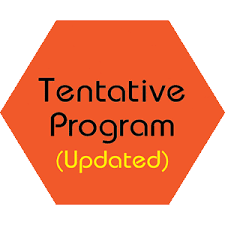
Abed N Azab
Ben-Gurion University of the Negev, Israel
Title: Effects of analgesics administration, surgical techniques and parental anxiety on hospital length of stay among post-tonsillectomy children
Biography
Biography: Abed N Azab
Abstract
Background: Tonsillectomy is a surgical procedure in which the tonsils are partially or totally removed. Hospital length of stay (HLOS) is an important predictor of resource utilization.
Objective: The present study examined the associations between parental anxiety, surgical technique and analgesic regiment - and HLOS among post-tonsillectomy children.
Materials & Methods: Parents of children planned for tonsillectomy who met the inclusion criteria and signed an informed consent to participate in the study were included. Before surgery, parents completed anonymous questionnaires for demographics and for assessing anxiety. After surgery, medical files were utilized to ascertain the surgical technique used and the analgesics type, quantity and timing of administration. HLOS data was obtained from hospital computerized records. Statistical analyses were performed to evaluate the effect of parental anxiety level, surgical technique, analgesics quantity and scheduling on HLOS.
Results: The study sample included 95 parents. The average age of children was 5.51 years, 65% males. The primary indication for tonsillectomy was obstructive sleep apnea. Partial removal of the tonsils was performed in 66% of cases (85% were done using mono- and bi-polar electrocautery method). Participating parents had low trait anxiety and moderate state anxiety levels. Analgesics were mostly managed according to the child's pain ("as needed" dosing) and not according to a scheduled regiment. Parental anxiety and surgical technique did not significantly affect HLOS. In contrast, analgesic regiment significantly influenced HLOS: children who received scheduled analgesics had a significantly longer HLOS.
Conclusions: Our results suggest that type of analgesic regiment but not parental anxiety or type of surgical technique significantly affected HLOS. Nevertheless, parents had low to moderate anxiety levels, underscoring the need for anxiety-relieving interventions for parents of tonsillectomy-operated children especially on the day of operation.

